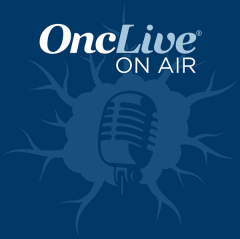
Dr. Scott on the Incorporation of GARD-Based Radiotherapy Dosing in Oncology

Jacob G. Scott, MD, DPhil, discusses the incorporation of genomic-adjusted radiation dose–based radiotherapy dosing in oncology.
Episodes in this series

Jacob G. Scott, MD, DPhil, associate staff, Departments of Translational Hematology and Oncology Research and Radiation Oncology, Cleveland Clinic, clinical assistant professor, Department of Molecular Medicine, adjunct assistant professor, Department of Physics, Case Western Reserve University School of Medicine, member, Development Therapeutics Program, Case Comprehensive Cancer Center, Case Western Reserve University, discusses the incorporation of genomic-adjusted radiation dose (GARD)–based radiotherapy dosing in oncology.
Although it can be difficult to define levels of evidence in biomarker studies based on archival tissue specimens, GARD-based radiotherapy dosing is backed by level 1 evidence and is potentially ready for use in clinical practice, Scott says. However, incorporating a clinical decision support tool will require some relearning of practice standards, which have always been based on empirical evidence from dose-escalation trials, Scott explains.
The tool, which is similar to an oncotype assay, supports the idea that quantifying the biological effect of radiotherapy with GARD is associated with time to first recurrence and overall survival for patients with cancer who undergo radiation treatment. Moreover, GARD-based dosing is predictive of benefit with radiation therapy, Scott concludes.












































